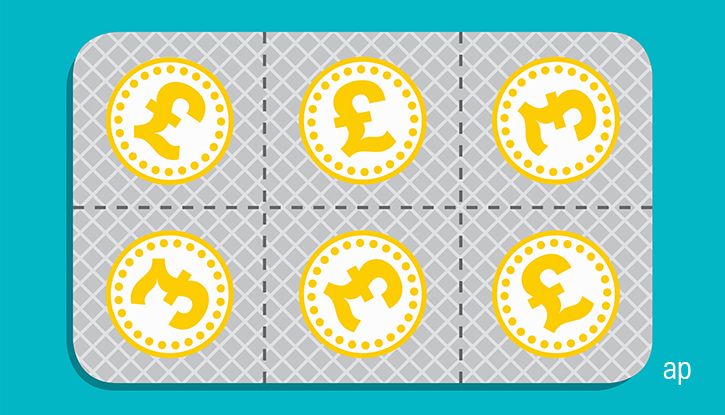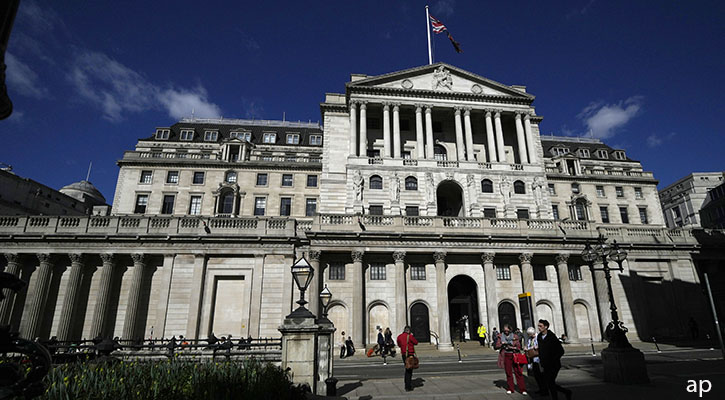
Earnings season has wrapped up once more, and UK equities are trading at record highs.
The biggest dividend names have also updated investors on their intentions. In the last few weeks, tobacco giant Imperial Brands (IMB) and telecoms stock BT (BT.A) have announced increases to their dividends, joining HSBC (HSBA) and AstraZeneca (AZN).
Starting with IMB, the Bristol-headquartered tobacco giant joined the buyback club in March, pledging to buy £600 million of shares in the first half of the financial year. And it increased its first-half dividend by 4% to 44.90p per share. This increase comes amid an 18% fall year-on-year in earnings per share to 96p, and a 2.6% drop in operating profits.
UK Companies Increasing Their Dividends:
• IMB;
• BT;
• HSBC;
• AstraZeneca.
But here's where it gets a bit morally complicated.
Morningstar's dividend screen has no environmental, social or governance (ESG) filter, which would remove two of the highest-yielding stocks in this roundup. This means dividend investors face a dilemma, as companies with higher ESG risks (like oil giants and tobacco firms) are, for now, the most cash-generative.
Given the addictive nature of its products and the supply chain issues involved in the processing of tobacco, such businesses can lean on a combination of higher prices and "next-generation" vape and heated tobacco products to replace some of their lost sales. But regulatory pressure is unlikely to relent. Even though Rishi Sunak's own plans to ban disposable vapes and progressively increase the age at which people can purchase cigarettes have been scuppered by the election, there is a sense a seed has been planted.
"At just six times forward earnings, and carrying a yield of 8.5%, [IMB] shares are likely to be on the radar of income investors who don't feel compelled to avoid the sector for ethical reasons, but price rises alone can't keep driving growth indefinitely," says Derren Nathan, head of equity research at Hargreaves Lansdown.
Russ Mould, investment director at AJ Bell, adds that efficiency drives have helped the company stay highly profitable.
"The shares' fat dividend yield and lowly valuation […] still suggest investors remain concerned about the long-term future of smoking, thanks to the way in which regulatory pressure and health campaigns weigh on volumes," he says.
"But Imperial Brands remains highly profitable and cash generative thanks to efficiency drives and pricing power."
Which Other Companies Will Buy Back Shares?
More share buybacks may be on the horizon in this space. British American Tobacco (BATS) releases a trading update on June 4, when investors may hear about buybacks ahead of its half-year results on July 25.
You may recall the company has a fixed dividend calendar until February 2025, which it set out earlier this year. As a result, there will be four identical quarterly payments of 55.88p in May 2024, August 2024, November 2024, and February 2025. Collectively, these amount to 235.52p per share – roughly 10% of the current share price of £24.03.
In other dividend news, as the end of the current earnings season approaches, dividend stalwart National Grid (NG.) is planning to cut its payout and launch a rights issue in a bid to fund renewables projects. Shares fell when investors heard the news, but Morningstar analyst Tancrede Fulop argues they are undervalued at current prices – and may therefore be a buying opportunity.
One potential bright spot for dividend investors has appeared this week. Barring a new buyer, Anglo American (AAL) looks set to stay on the London Stock Exchange after talks with BHP (BHP) came to naught.
Anglo's dividend isn't the most generous of the mining stocks. Though the company paid a bonus dividend in 2021 and 2022, payouts have fallen year-on-year: the latest annual dividend, paid May 3, was 32.89p (59.2p in 2023). Still, its dividend yields more than 3% (see methodology below for more information on why this is important. Half-year results are due on July 25, at which point we'll hear more about a September half-year payout.
Are UK Dividends More Generous Than Elsewhere?
Internationally, overseas companies are more generous with their dividends than their UK counterparts, according to the latest Janus Henderson Global Dividend Index for May 2024.
This report says total payouts for Q1 hit a record of $339.2 billion (£267 billion), driven by Swedish, Canadian and US companies. The 2024 dividend forecast is for $1.72 trillion, up 3.9% on a headline basis (including special dividends), or 5% higher on 2023 on an underlying basis, excluding one-off payments.
In the UK, the headline growth rate – including special dividends – was much higher than the underlying growth rate, while currency made a positive contribution to quarterly growth as the pound strengthened against the dollar and euro.
Janus Henderson analysts say underwhelming nature of UK company payouts can be explained by one thing in particular: the rise of share buybacks, and especially in the oil sector, which means there are fewer shares overall paying out. This lowers the total figure.
"In the oil sector, large per-share increases in dividends translated to much smaller increases in the total value paid because companies such as Shell (SHEL) have bought back so many of their shares over the last year," they say.
"This share count effect is apparent in several large UK companies and masks stronger growth than otherwise seems apparent."
There were some bright spots in the report though for UK income investors; while Q1 was relatively quiet, banking dividends should kick in for the rest of the year. For more on that, keep following Morningstar.co.uk.
Recent Morningstar Coverage on Dividends
During our recent week of content on income investing, we told you about Europe's highest-yielding dividend stocks and National Grid investors not taking too kindly to lower payouts. But we also asked if investors should ditch dividends altogether in favour of more consistent forms of income.
Methodology for Dividend Stock Screen
To make it on to our monthly list, FTSE 100 companies need now to have a Narrow or Wide Morningstar Economic Moat Rating, pay a dividend, and have a forward yield of 3% or more. This is below the Bank of England base rate, which still stands at 5.25%. We changed our methodology last year, introducing a hurdle of 3%. For the Morningstar Dividend Yield index: for the equity portion, Morningstar uses the forward dividend yield































